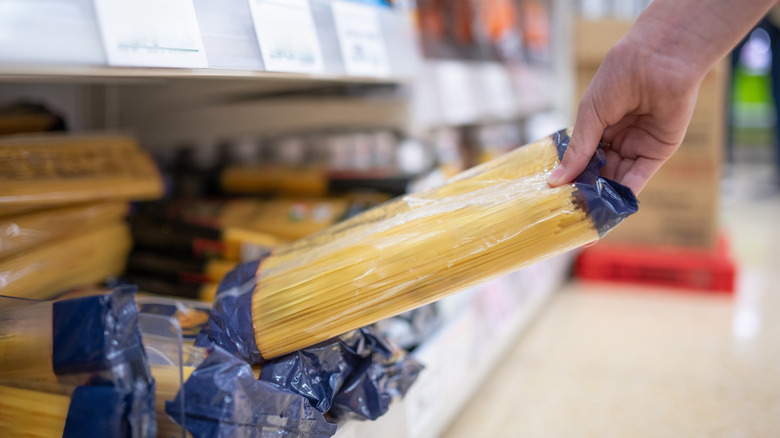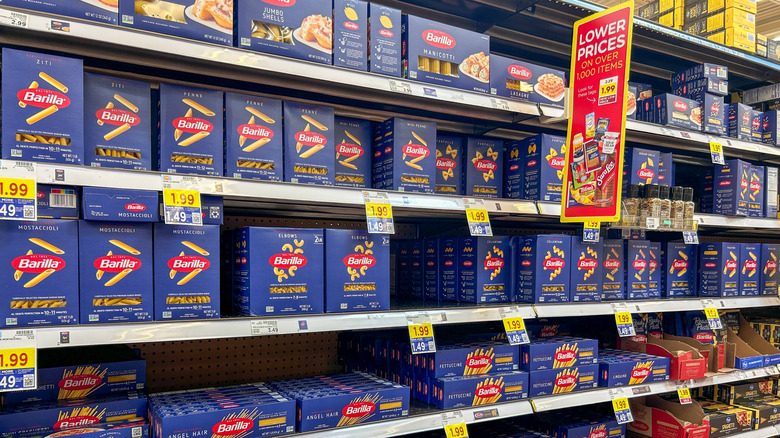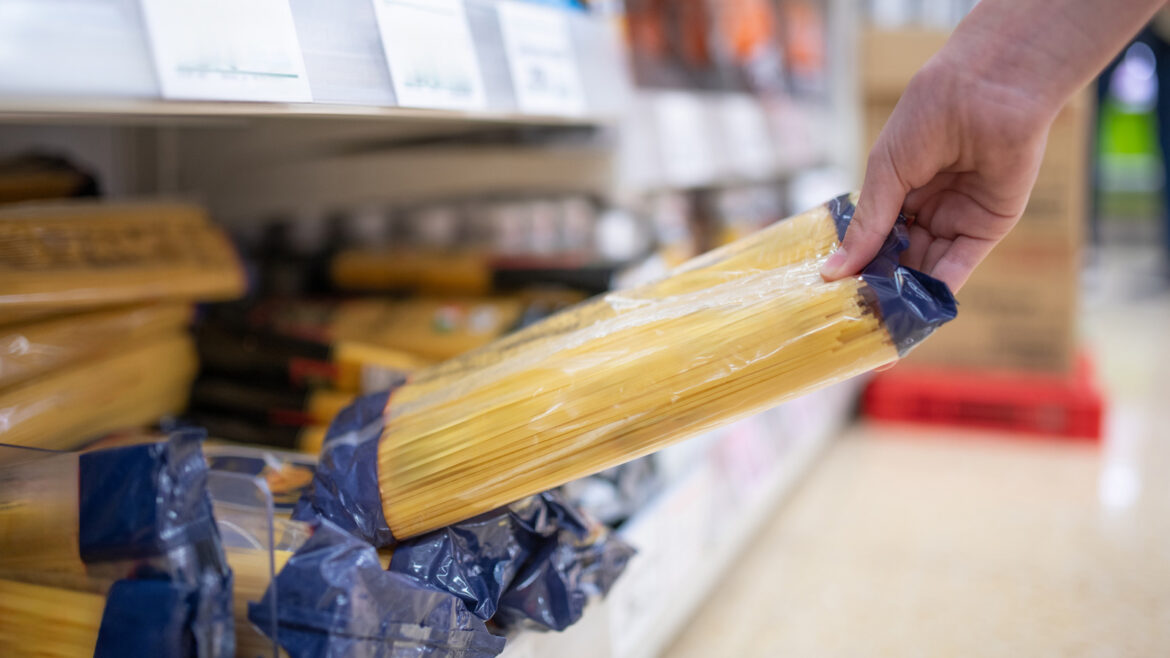
Hakase_/Getty Images
Pasta in Italy isn’t the same as the stuff in your pantry. While some might not even notice (or care about) the difference, others swear by the imported Italian pasta brands to get a more authentic experience. Some of those brands, however, might be disappearing from the grocery stores in January 2026, as a result of newly imposed tariffs.
On top of the existing 15% import tax, 13 brands are looking at an extra 91.74% taxation, increasing the overall percentage to 107%. If these tariffs go into effect, the brands will likely have to double the price of their pasta in stores, leading some to consider leaving the U.S. market entirely. The affected brands are: Agritalia, Aldino, Antiche Tradizioni Di Gragnano, Barilla, Gruppo Milo, La Molisana, Pasta Garofalo, Pastificio (Artigiano Cav. Giuseppe Cocco, Chiavenna, Liguori, Sgambaro, Tamma), and even Stanley Tucci’s favorite boxed pasta, Rummo.
These specific brands are being hit with the extra tax because the United States Department of Commerce accused them of dumping; a practice where companies sell their exported goods at a lower price than other domestic retailers, therefore undercutting (and potentially dominating) the domestic market. The brands in question are rightfully upset, both by the claims of dumping and the potential added tax, hinting that the tariffs have more to do with broadly blocking imported goods than anything else.
The possible consequences of placing a 107% tax on Italian pasta

PassingMoments/Shutterstock
The most daunting consequence, as already mentioned, is the possibility that some Italian brands could entirely remove their product from American shelves. Not only would this affect the average consumer, it would also impact the restaurant industry — the restaurants that use imported Italian pasta in their dishes will either have to switch brands or make Italian-style pasta from scratch, even though fresh pasta isn’t always better than dried. The brands that intend to stay on the U.S. market will have to raise their prices significantly, which by extension means the cost of meals in restaurants or at home will climb higher too.
That said, the tariffs are only set to impact imported pasta, not Italian brands by default. Barilla, one of the most popular Italian pasta brands out there, reportedly manufactures most of the pasta sold in the U.S. directly in the states, meaning the price of those boxes would remain unchanged. The announcement of these tariffs has also been met with loud pushback, both from the public and several European officials, and the proposed taxation rate is not yet final, so there is still hope for some leniency from the U.S. government.


Dining and Cooking